UN, Kazakh Officials Discuss Cooperation Framework for Next Five Years
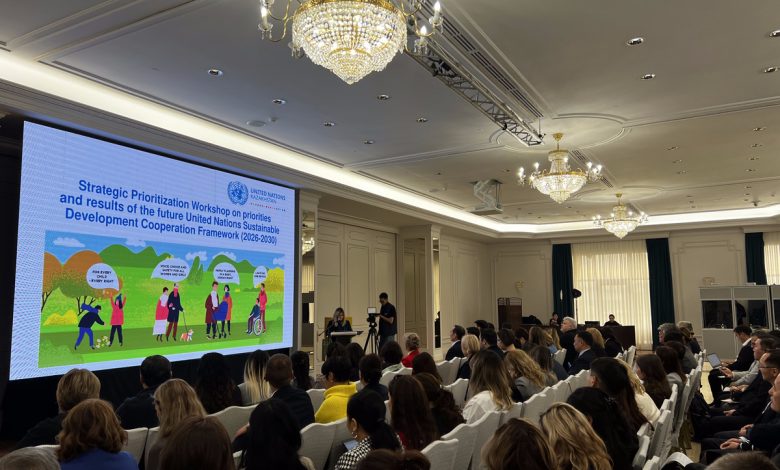
ASTANA – The United Nations Country Team in Kazakhstan and the Kazakh government held a workshop on Oct. 8 to define key priorities for the upcoming UN Sustainable Development Cooperation Framework for 2026-2030. The discussions focused on how the UN will support Kazakhstan’s national development over the next five years.
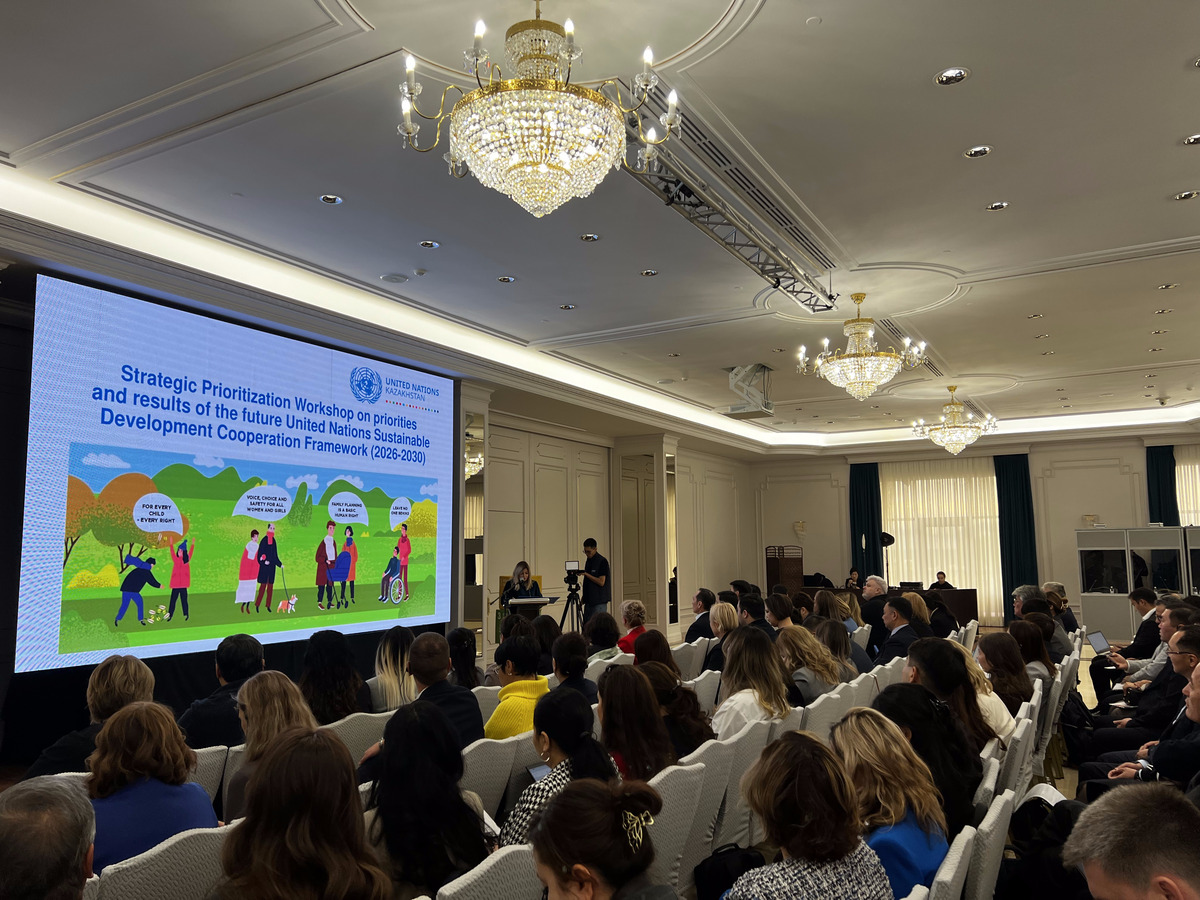
The workshop gathered more than 70 participants. Photo credit: UN Office in Kazakhstan
The event, officially called a Strategic Prioritization Workshop, gathered more than 70 participants from various sectors, including government agencies, non-governmental organizations, academia, think tanks, and the private sector.
Discussions centered on identifying priority areas, exploring opportunities and challenges, and pinpointing necessary actions and gaps in achieving the Sustainable Development Goals (SDGs), with just a little more than five years left until the 2030 deadline.
Particular focus was given to ways to accelerate progress and determine where the UN can provide the most impactful support in helping Kazakhstan meet its national goals. Additionally, the seminar addressed financial and non-financial commitments required to achieve the SDGs in the country.
The Cooperation Framework is the UN’s guiding document and roadmap for all its activities in Kazakhstan. It outlines how resources will be allocated to advance the SDGs and highlights collaborative efforts between the UN, government, civil society, private sector, and other stakeholders to accelerate progress on the 2030 Agenda for Sustainable Development.
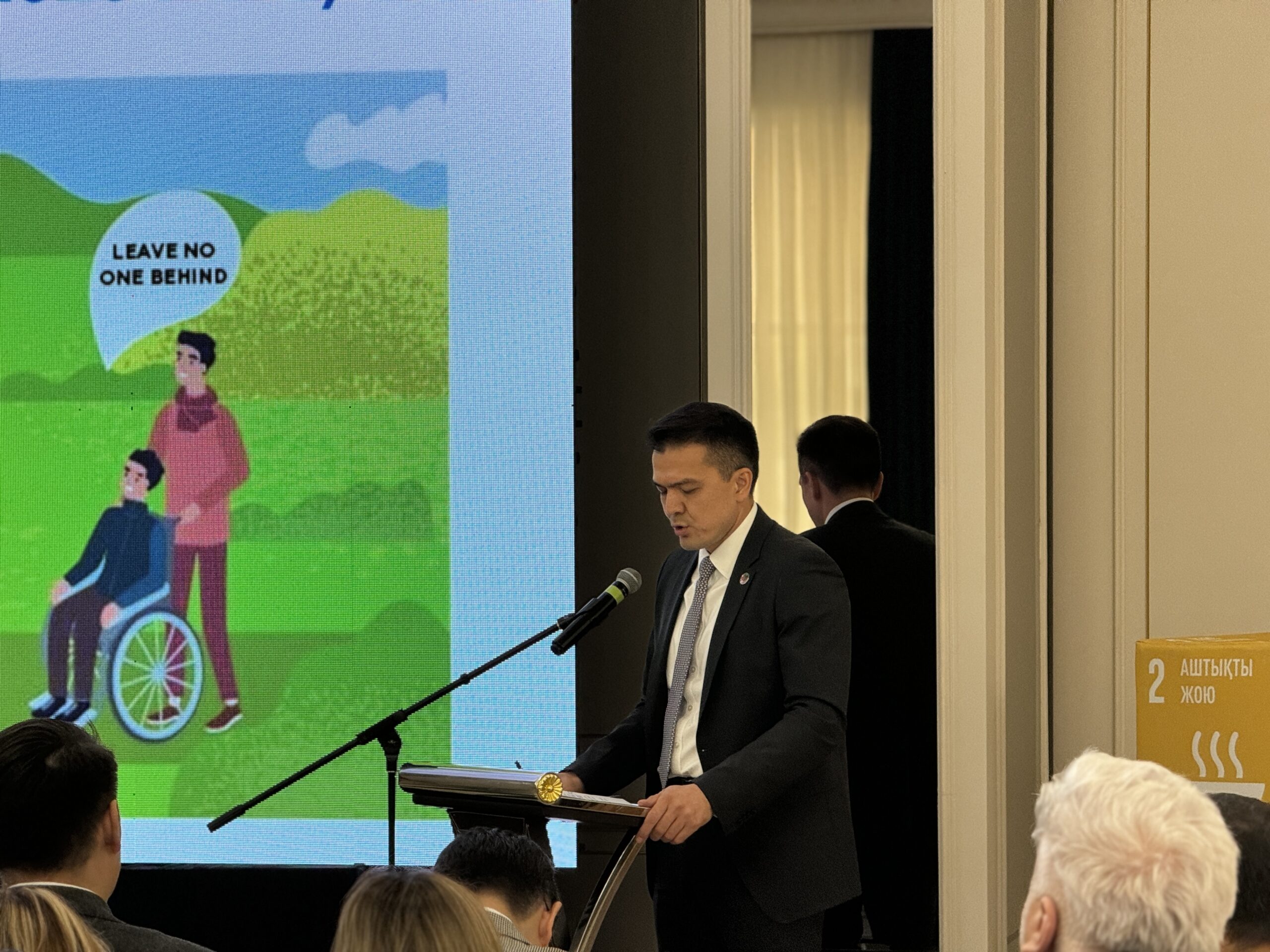
Anuar Sarmantai delivers his remarks. Photo credit: The Astana Times/ Assel Satubaldina
“Unfortunately, with just six years remaining, current progress falls far short of what is required to meet the Sustainable Development Goals. Without scaled-up action, the achievement of SDGs, the blueprint for a more resilient and prosperous world, will remain elusive. The outcomes of the Covid-19 pandemic, escalating conflicts, geopolitical tension, and growing climate challenges, severely hindered progress,” said Anuar Sarmantai, deputy director of the Department of Multilateral Cooperation at the Kazakh Foreign Ministry.
Referring to UN reports, Sarmantai said just 17% of SDG targets are on track, nearly half are showing minimal or moderate progress, and progress on over one-third has stalled or regressed.
“This means that despite what has been accomplished, a lot needs to be done. However, under the United Nations Sustainable Development Framework Cooperation for 2021-2025, UN agencies in Kazakhstan worked actively towards achieving SDGs,” he added.
Sarmantai stressed the significance of the 2026-2030 Cooperation Framework, as it represents the last major blueprint for joint efforts to achieve the 2030 Agenda for Sustainable Development. He noted that both sides must set ambitious goals and push toward their implementation, with digital transformation singled out as a critical driver of the 2030 Agenda.
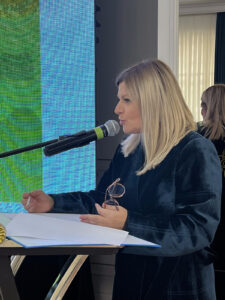
Katarzyna Wawiernia. Photo credit: UN Office in Kazakhstan
According to Katarzyna Wawiernia, the UNDP Resident Representative in Kazakhstan, SDG targets are not just targets on a global checklist but a reflection of people’s everyday realities.
“They represent a global promise to leave no one behind. They serve as a compass, guiding us towards a future where equality, prosperity, and environmental sustainability are within the reach of every citizen of Kazakhstan,” she said.
Wawiernia emphasized that the global setbacks caused by Covid-19 have reversed progress on many SDGs. “It is critical five years that we need to use to accelerate the achievement of SDGs,” she added.
She commended Kazakhstan for its strong multilateralism stance and for being a strong advocate of the SDGs.
Kazakhstan has aligned its national priorities with the SDGs, integrating them into the country’s development plans. The government has established an SDG Coordination Council to ensure that progress is tracked and initiatives are supported. Kazakhstan also recently reaffirmed its commitment to the Summit of the Future, a key initiative at the UN General Assembly.
“Kazakhstan ranks 66th out of 166 countries in the SDG index. The progress is there, but a lot needs to be done. And today’s conversation will shape the UN’s support to the country for the next cycle. This is a unique opportunity for us to align our strategies with national priorities, ensuring that our initiatives resonate with the aspirations of the people we serve,” she added.
Kurtmolla Abdulganiyev, head of the UN Resident Coordinator Office, spoke in detail about the UN activities in Kazakhstan. He pointed out that the UN in Kazakhstan comprises 27 specialized agencies, with 20 based in the country across two hubs—Astana for national-focused work and Almaty for regional operations. These agencies, from UNICEF to UNDP, cover various fields, including migration, child health, and economic development.
He noted that the UN primarily works with the government and focuses on advancing policies rather than large-scale humanitarian or peace-building activities, which are not as relevant in Kazakhstan.
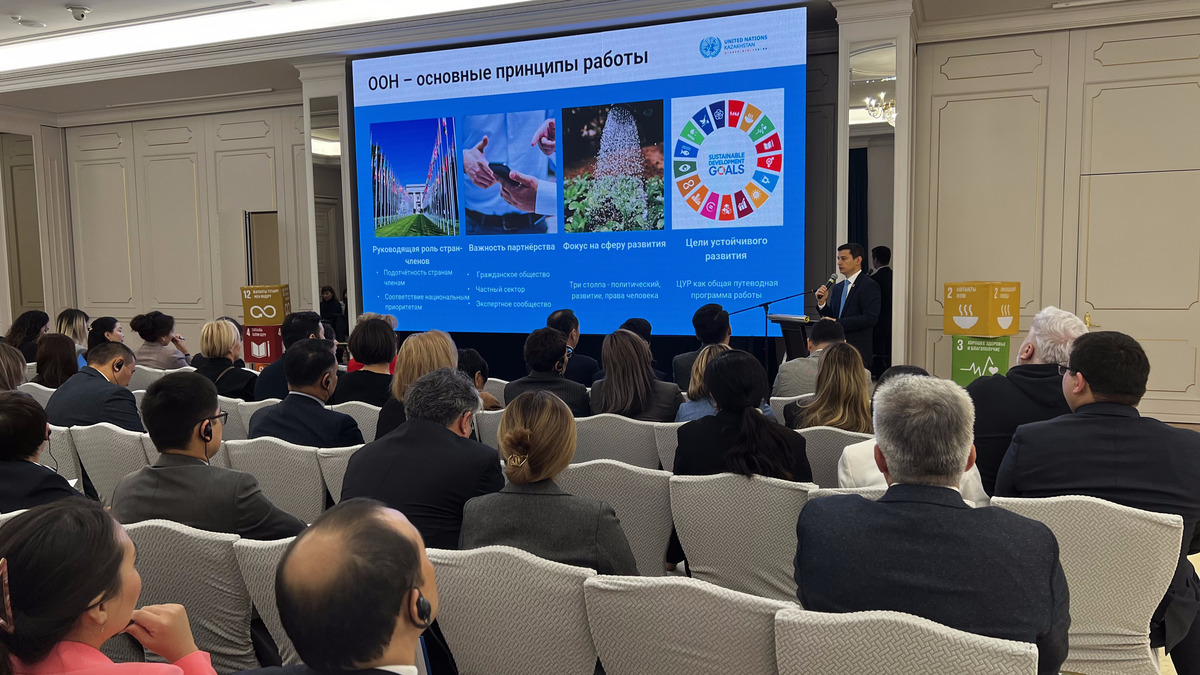
Kurtmolla Abdulganiyev explains the key pillars of UN work in Kazakhstan. Photo credit: UN Office in Kazakhstan
The diplomat clarified that the UN’s role is to help Kazakhstan meet its SDGs, but the responsibility for achieving them rests with the country itself.
“Our work mainly involves advising and supporting the implementation of policies and the adoption of international standards, particularly in policing. This could apply anywhere, whether in agriculture, governance, human rights protection, and so on—this is what we focus on. We also develop and strengthen capacity. (…) we organize training for government bodies to help implement policies in specific areas. Additionally, we provide knowledge and expertise and promote best practices. We examine which development solutions are working in other countries and strive to share and apply these practices here,” he explained.
Over the past 30 years, the UN has implemented over 400 projects in Kazakhstan at the national, regional and local levels in many areas, including reducing inequality, modernizing institutions, and supporting the most vulnerable groups.

